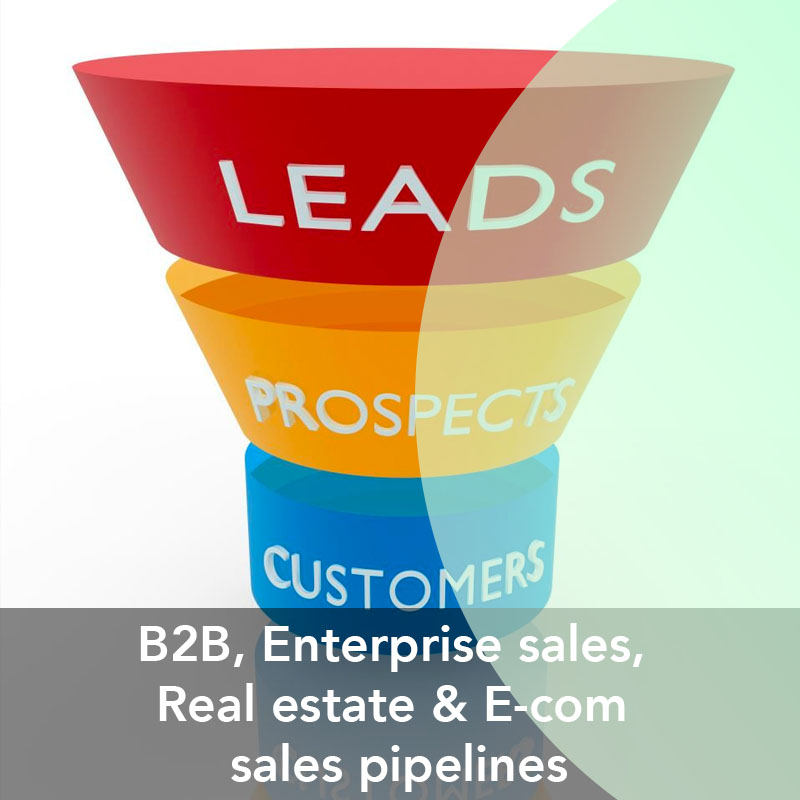Goal setting
Five different sales pipelines for B2B SaaS, Enterprise Sales, B2C E-commerce, Real Estate and Consultative Sales

A sales pipeline is a crucial instrument for controlling the sales process and monitoring the development of your sales targets. It offers a crystal-clear visual picture of each lead or opportunity's current state and what must be done to advance it. Depending on the sector and the kind of good or service being sold, there are many various types of sales pipelines, each with their own set of stages. Here are five examples of various sales pipelines and the steps that go along with them:
- 1. B2B SaaS: The sales pipeline for a B2B SaaS company may include stages such as:
- - Lead Generation
- - Qualification
- - Proposal
- - Negotiation
- - Close
- In this pipeline, the focus is on building relationships with decision-makers and presenting a compelling solution that meets the customer's needs.
- 2. Enterprise Sales: An enterprise sales pipeline may include stages such as:
- - Lead Generation
- - Qualification
- - Need Analysis
- - Solution Presentation
- - Proposal
- - Negotiation
- - Close
- In this pipeline, the focus is on conducting in-depth research and analysis to determine the customer's needs, presenting a customized solution, and securing a commitment from multiple decision-makers.
- 3. B2C E-commerce: A B2C e-commerce sales pipeline may include stages such as:
- - Awareness
- - Interest
- - Desire
- - Action
- - Repeat
- In this pipeline, the focus is on creating a positive customer experience and driving repeat purchases.
- 4. Real Estate: A real estate sales pipeline may include stages such as:
- - Lead Generation
- - Qualification
- - Showing
- - Offer
- - Negotiation
- - Close
- In this pipeline, the focus is on building rapport with the customer, finding the right property that meets their needs, and negotiating the best deal for both parties.
- 5. Consultative Sales: A consultative sales pipeline may include stages such as:
- - Lead Generation
- - Qualification
- - Needs Analysis
- - Solution Design
- - Proposal
- - Negotiation
- - Close
- In this pipeline, the focus is on building trust and establishing a deep understanding of the customer's needs to design a solution that meets their specific requirements.
You may choose the sales pipeline that best suits your company and sales process by studying the many types of sales pipelines. By prioritizing your sales efforts and structuring your sales process, you can increase your chances of closing the deal.